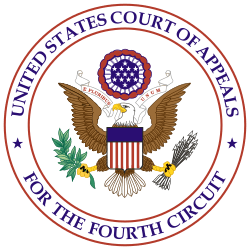Simkins v. City of Greensboro facts for kids
Quick facts for kids Simkins v. City of Greensboro |
|
|---|---|
 |
|
| Court | United States Court of Appeals for the Fourth Circuit |
| Full case name | City of Greensboro and the Gillespie Park Golf Club, Incorporated v. George Simkins, Jr., Phillip W. Cook, Leonidas Wolf, Samuel Murray, Arthur Lee, Jr., Lonnie Reynolds, William Holmes, Elijah Herring, Joseph Studivent and James G. Hagins |
| Argued | June 14, 1957 |
| Decided | June 28, 1957 |
| Citation(s) | 246 F.2d 425 |
| Court membership | |
| Judge(s) sitting | John J. Parker, Simon Sobeloff, Clement Haynsworth |
| Case opinions | |
| Per curiam | |
Simkins v. City of Greensboro was an important court case from 1957. It made the city of Greensboro, North Carolina, stop treating people differently based on their race at its Gillespie Park Golf Club. This was true even though the city was letting a private group run the club. The Fourth Circuit Court of Appeals agreed with the earlier decision.
Contents
Why This Case Happened
In December 1955, six African-American men wanted to play golf. They went to the Gillespie Golf Course in Greensboro, North Carolina. This golf course was built using public money, meaning it belonged to everyone.
Playing Golf and Being Accused
The six men, including George Simkins, Jr., paid their fees to play. They started playing even though they were told they weren't allowed to. That night, they were accused of being on the property without permission. In February 1956, they were found responsible for this accusation. However, the North Carolina Supreme Court later changed this decision in June of the next year.
The Court Case Begins
While that first case was still happening, George Simkins, who was one of the six men, started this new case in a Federal District Court. In March 1957, he won a court order. This order stopped the golf course from treating people unfairly based on their race. The golf course then asked a higher court, the Fourth Circuit, to review this decision.
The Court's Decision
The Fourth Circuit Court of Appeals made a decision quickly. They said that the earlier court order was correct. They explained that a city could sell its property if it was a real sale. But, a city could not simply rent out its property to avoid rules against treating people unfairly.
No Discrimination on Public Property
The court said, "the right of citizens to use public property without discrimination on the ground of race may not be abridged by the mere leasing of the property." This means that people have a right to use public places without being discriminated against. A city cannot get around this rule just by renting out the property.
Impact on Civil Rights
Some people think this case helped change the idea from Plessy v. Ferguson. That older case had allowed "separate but equal" facilities. The famous Brown decision had only focused on public schools. Simkins v. City of Greensboro showed that the rule against discrimination also applied to other public places, even if they were leased.
What Happened Next
Instead of letting people of all races play golf together, the city of Greensboro decided to sell its golf courses.
Later Legal Actions
The accusations of being on the property without permission that started this whole story were looked at again. All six men were found responsible a second time. This happened because information about the court order in the Simkins case was not shared in their trial. Later, the decisions against the six men were changed.
 | William Lucy |
 | Charles Hayes |
 | Cleveland Robinson |

